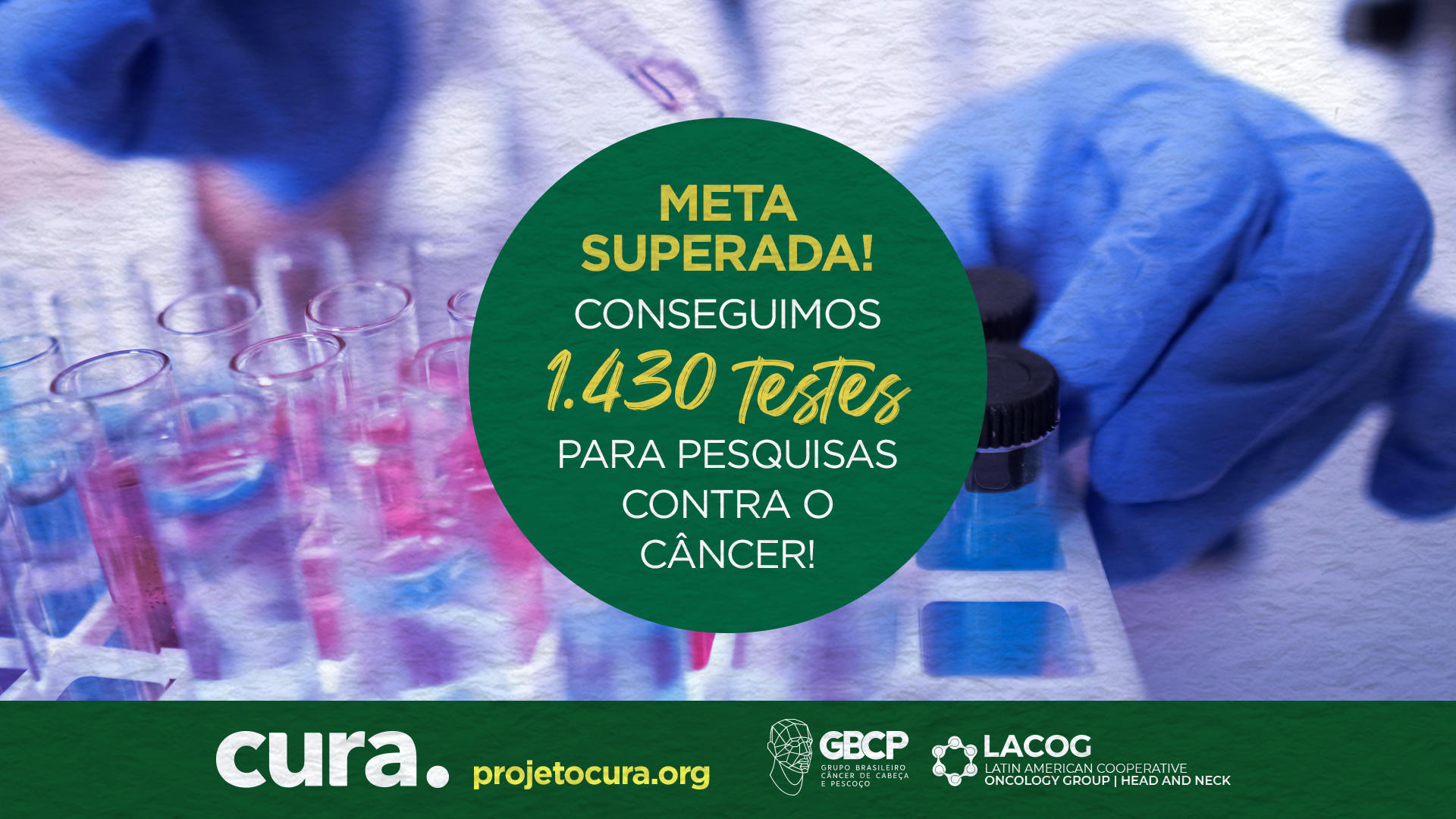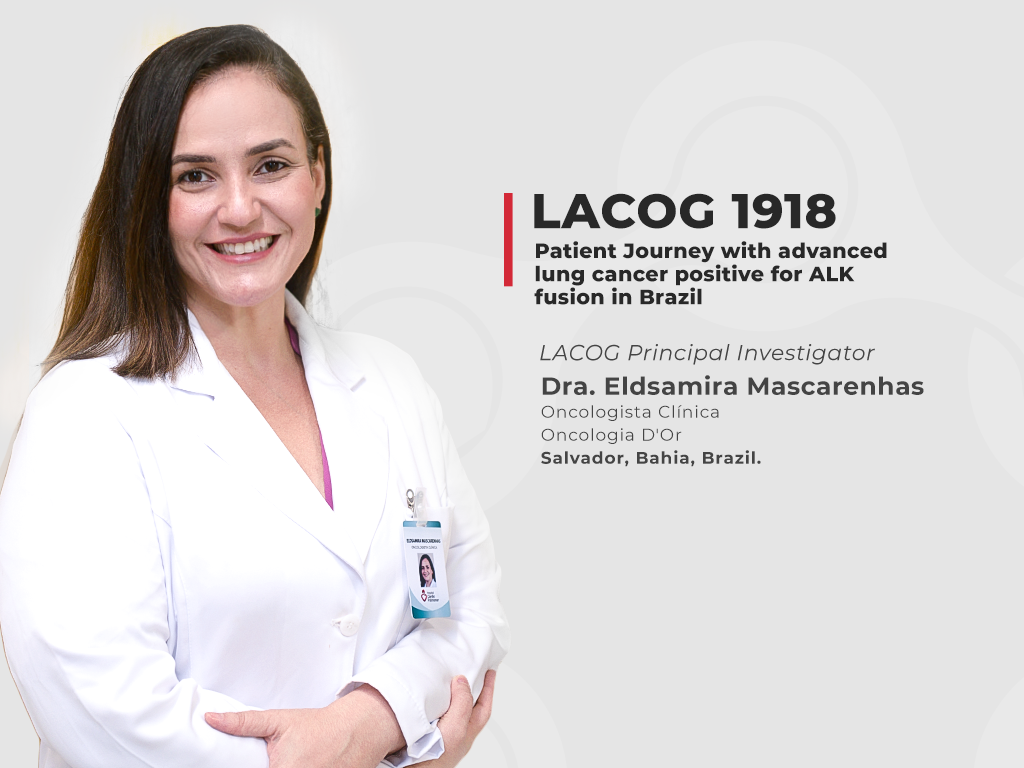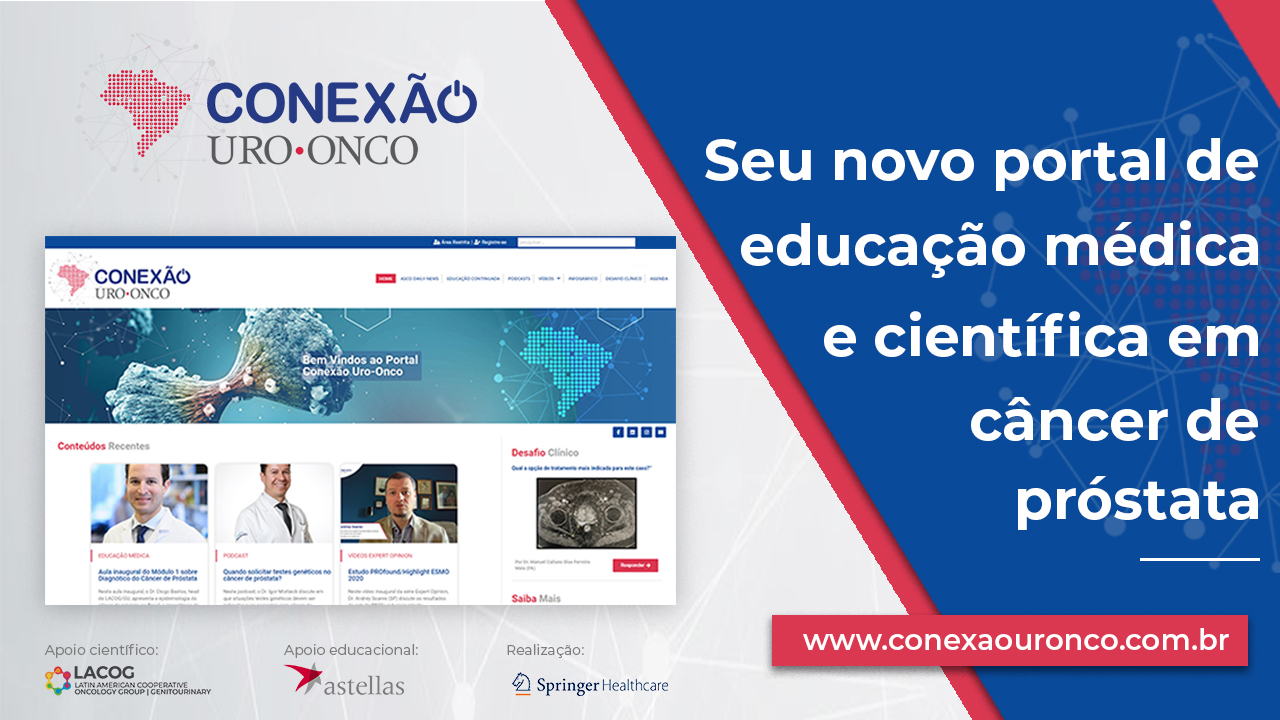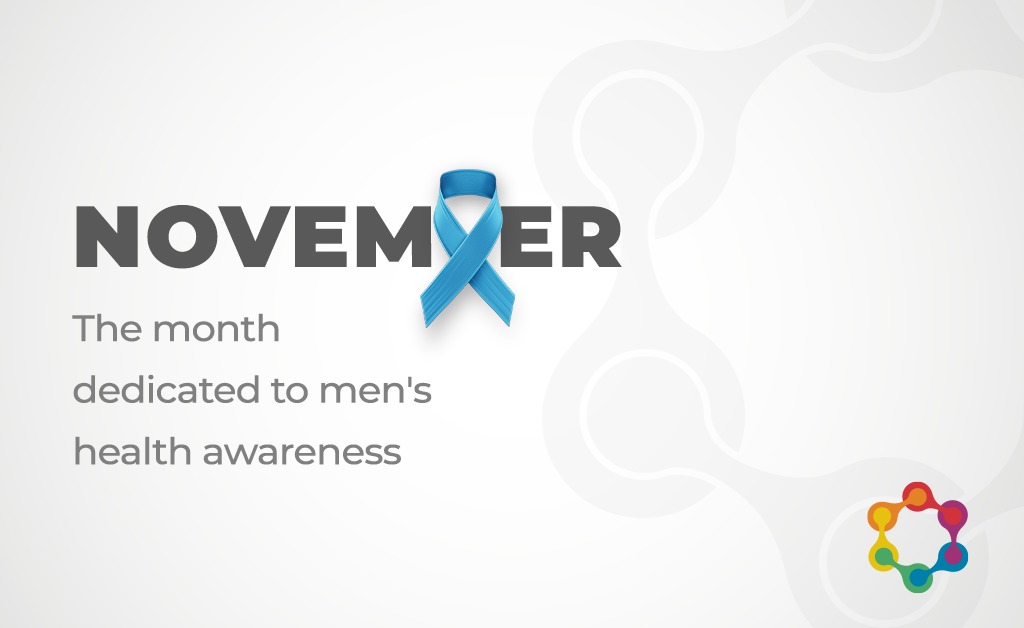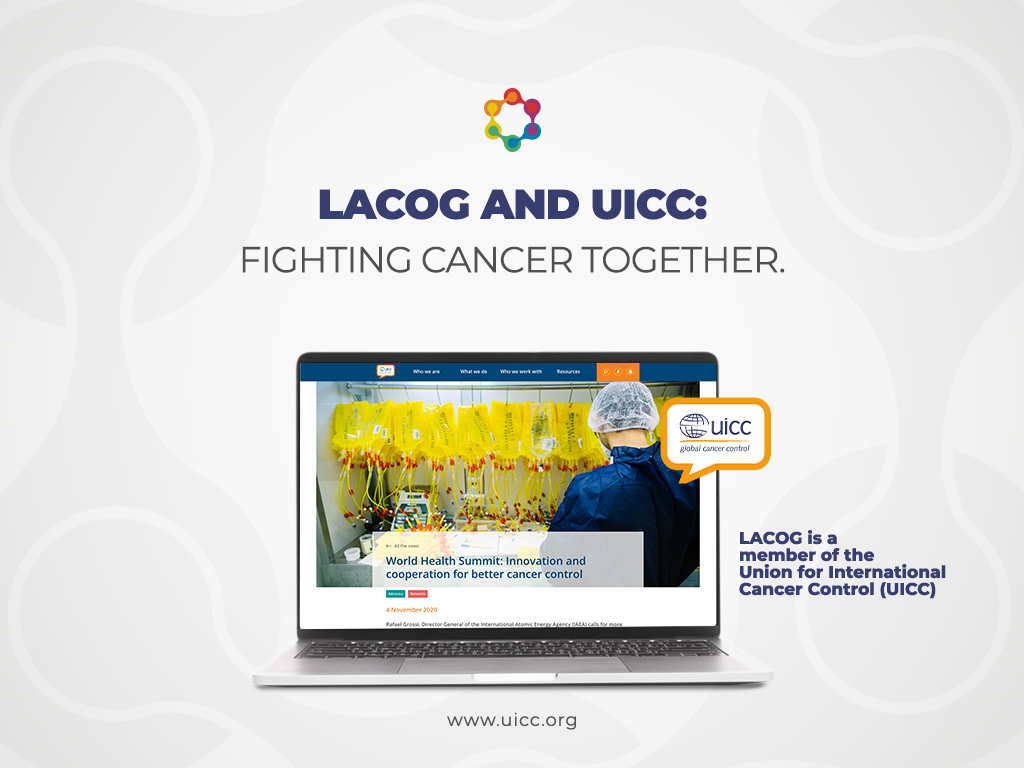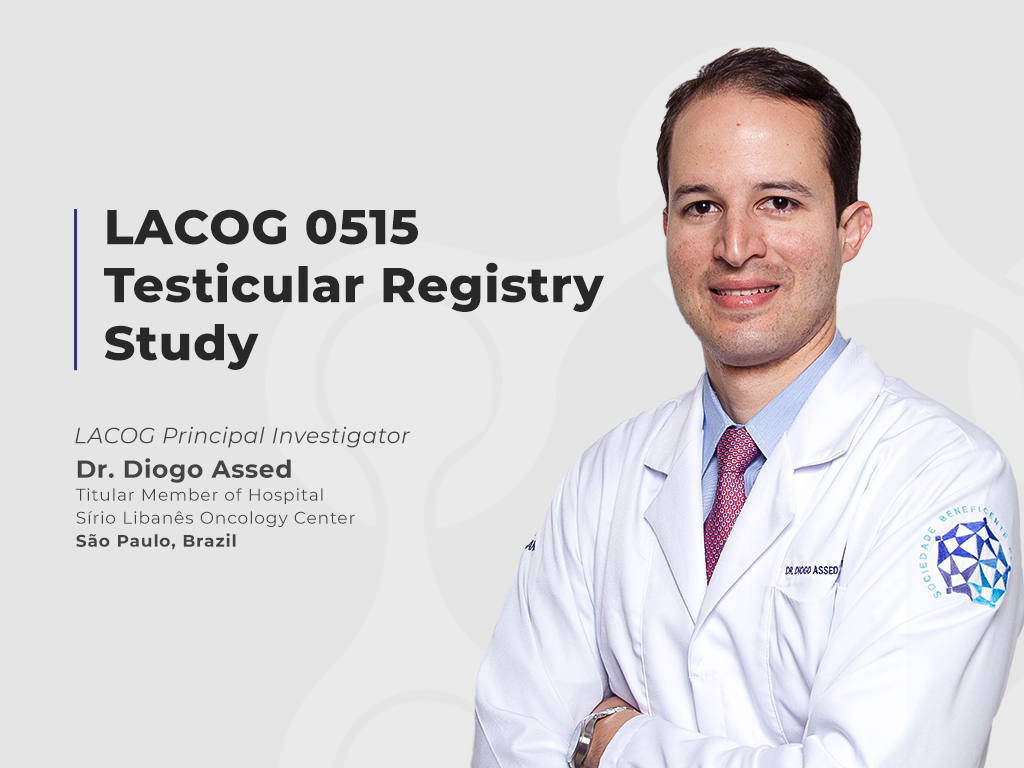The Red Journal publishes a study by LACOG’s Head and Neck Cancer Group
In September 2020, investigators from the LACOG Head and Neck Cancer Group published the results of the study: “Health-related quality of life outcomes in head and neck cancer: results from a prospective, real-world data study with Brazilian patients treated with intensity modulated radiation therapy, conformal and conventional radiation techniques” in the well-known scientific periodical, International Journal of Radiation Oncology – Biology – Physics. The study involved 570 Brazilian patients with head or neck cancer and assessed the impact of three different types of radiotherapy: Intensity-Modulated Radiation Therapy (IMRT), conformational radiotherapy and conventional radiotherapy, on patients’ quality of life and overall survival. According to Dr. Marcos Santos, radio-oncologist at the CONFIAR-Goiânia Group and the principal investigator who carried out the study for the group, having a paper accepted for publication shows that Brazil is now playing an active part in producing the real world data that is relied upon by regulatory agencies around the world when making decisions on technology. “It also means that, if we invest in encouraging the use of IMRT to treat head and neck cancer, we can be confident that, depending on the amount, it will be of real help to patients.” The findings of the trial confirm that
The Instituto Projeto CURA raises more than BRL 180,000 for cancer research in Brazil
Over 300 donors contributed to the fundraising activities, supported by medical oncologists from all over Brazil. A Fundraising campaign raised BRL 184,000, between July and September, to fund research into the fight against head and neck cancer. “A thousand tests for cancer research” was the slogan for the campaign, which was carried out in partnership with the Brazilian Group for Head and Neck Cancer - GBCP, and the Latin American Cooperative Oncology Group - LACOG. The campaign was heavily featured online, supported by doctors, celebrities, influencers and patients and the results exceeded all expectations. The basic aim of the campaign was to fund the basic costs for taking and storing a thousand laboratory tests - blood samples and biopsies. The campaign beat its target by an extra 43%, which means that it raised enough for the basic costs of 1430 tests. This result was only possible thanks to the dedication of doctors and investigators of the GBCP who found an innovative way to win over 335 donors to the cause. Despite the difficulties caused by Covid-19, the donation page had over seven thousand hits. As well as raising funds, the campaign wanted to raise awareness of the importance of supporting research in Brazil. According to
The challenges of lung cancer patient’s journey: from diagnosis to treatment
The delay between diagnosis and the beginning of a disease treatment is a reality for many patients, oncological or not. Such delay has a significant impact on the quality of life and, in many cases, on overall survival of patients. Seeking to describe the journey of patients with ALK-positive non-small cell lung cancer, Dr. Eldsamira Mascarenhas, a clinical oncologist at Oncologia D'Or Salvador, along with LACOG, is coordinating the observational study: The journey of patients with ALK-positive advanced lung cancer in Brazil (LACOG 1918). “We wish to understand what patients with ALK-positive advanced lung cancer face from the moment they receive the diagnosis until the beginning of treatment. With this information, we will be able to act more effectively and therefore provide earlier diagnosis and therapy”, she explains. According to Dr. Mascarenhas, studies like this are important because there has been a significant increase in cancer incidence over the years. “Developing a clinical research will answer important questions we have about this population.” Dr. Mascarenhas believes that clinical research transforms society around the world. However, Brazil still does not play a prominent role in this scenario since we have had little participation in the development of studies. For that reason, the work
The GBOT holds a virtual symposium to discuss the latest developments in the diagnosis and treatment of lung cancer
The Brazilian Thoracic Oncology Group (GBOT) held its 2020 Virtual Symposium on November 6th and 7th. For the first time, the event took place entirely online. “Due to the unusual format of the event, it was a challenge for the group and the board to develop a program that would be captivating, especially considering the amount of online lectures and symposia we have had over the last few months. However, I think that this format made the event more interactive because it enabled the participants to discuss topics and share their own experiences, rather than just listen to the lectures,” explains Dr. Ana Gelatti, the GBOT vice president. The aim of the symposium is to discuss the main developments in lung cancer diagnosis and treatment, as well as the latest evidences on tumor markers, new drugs and therapies. Around 400 pulmonologists, radio-oncologists, thoracic surgeons, clinical oncologists, and other specialists participated in the event. Dr. Gellati especially highlights the Sessions of Controversies regarding the management of patients with lung cancer. Osimertinib in adjuvant treatment, the relationship of two immunotherapies in first-line lung cancer treatment and the assessment of patient N2 and the best approach in their case were some of the topics discussed
Conexão Uro-Onco- Your new resource center for medical and scientific education in prostate cancer
TheConexão Uro-Onco is a scientific resource center dedicated to Brazilian oncologists who aims to be up-to-date with scientific progress, discussions which enhance the knowledge and support their clinical decision-making on prostate cancer. With scientific support and endorsement by LACOG-GU and educational support from Astellas Farma, in addition to the prestigious participation of renowned experts from all regionsof the country,the contents are specially designed for this initiative and present engaging formats to provide dynamism, standing out as a practical resource also referenced in the busy daily routine - for free access anywhere, anytime and fromany device. Among the different contents you will find ASCO Daily News, pocket medical education classes to update essential topics in Clinical Practice, Expert Opinion, Podcasts, Clinical Challenges, world-renowned expert commentaries from Medicine Matters Oncology, besides other engaging formats. Visit www.conexaouroonco.com.br and follow us on social media to get the latest contents. Instagram: @conexaouroonco Linkedin: Conexão Uro-Onco
November: the month dedicated to men’s health awareness
November is the month dedicated to raising awareness of men's health issues, in particular prostate cancer, which is the most common cancer type in men in Latin America and the third cause of death. Despite the significant advances in prostate cancer treatment in the last years, there are still patients that suffers from advanced disease. According to Dr. Andrey Soares, a clinical oncologist at Israelita Albert Einstein Hospital and the Paulista Oncology Center, and Scientific Director of the LACOG Genitourinary Group, screening for this type of cancer (PSA and digital rectal exams) is simple and inexpensive, and makes a big difference in early diagnosis. “It is important to emphasize that diagnosis means we can assess an individual’s risk of dying from the disease. In many cases, when cancer is considered to be low risk, the patient doesn’t need any treatment, just monitoring. If diagnosed early, the chance of a cure is approximately 90%.” But, as Dr. Soares explains, a significant number of patients, specially from public health system, in Latin America are being diagnosed advanced stage disease. "This is probably because it is hard to reach these people with awareness campaigns and screening programs therefore in some cases the health systems are inefficient, making it
LACOG and UICC: working together to improve cancer outcomes
LACOG’s objective is to improve cancer outcomes, focusing on the needs of Latin America. In order to achieve this goal, LACOG works in partnership with the Union for International Cancer Control (UICC) which is an institution with members from over 1,100 organizations in 170 countries. The UICC represents the world's leading cancer societies, ministries of health and patient groups and includes government policy makers, researchers and specialists in cancer prevention. UICC was founded in 1933. The organization is an international cooperation network that aims to find ways to reduce the incidence of cancer in the world, as well as promote equity and ensure that controlling the disease is a priority for the global health. Over the years, the UICC has encouraged the development of cancer institutions, the sharing and exchange of knowledge, skills and technology, and the training of professionals who are engaged in preventing and controlling cancer. The organization contributes to scientific discussions, professional training programs and meetings aimed at producing cancer policies. Additionally, UICC promotes Virtual Exchanges which provide members the opportunity to ‘meet’, exchange knowledge, and share solutions. LACOG's partnership with UICC contributes to the establishment of strategic communication among their members, allowing them to join forces and work more effectively.
4th GU Review International Symposium 2020 was attended by approximately 1800 participants
LACOG’s Genitourinary Group held the 4th GU Review International Symposium 2020 and the 2nd Multi-profession Symposium on October 29th to 31st. It was an entirely virtual event, due to the pandemic and featured 93 speakers, of whom 74 were Brazilian and 19 from other countries. Dr. Diogo Assed Bastos, the Chair of the LACOG Genitourinary Group, commented that the meeting had exceeded all expectations and that it was growing and becoming increasingly more significant every year. “Around 1800 registered for the event, including clinical oncologists, urologists, radiotherapists, pathologists, radiologists and nuclear medicine physicians. Around 90 of these were from other countries, mainly Latin America, such as Chile, Argentina, Colombia and Mexico. For the first time, the event had simultaneous translation, which helped to encourage more people to attend. The main purpose of the event is to provide a review of the most recently published work in the genitourinary field and encourage discussion on how these developments can be best applied, in order to help manage diseases such as prostate, bladder and kidney cancer. "The event was a great success, and the online format worked very well. As it was held over three days, we were able to offer a very flexible program
Research sites & Investigators: partnerships that encourage clinical trials
Frequently, the best cancer treatment option for patients is still based on data from clinical studies conducted in European countries or in the United States. There are few studies based on Latin American populations. But, according to Dr. Diogo Assed Bastos, it is time for Latin American countries to take part in the development of clinical studies in order to provide treatment options that are more adequate to Latin-American patients: We need studies to take place in Latin American countries in order to understand what the characteristics of these patients are and what responses are produced by different treatments Dr. Bastos currently works as an oncologist at Sírio-Libanês Hospital and at Instituto do Câncer de São Paulo (ICESP), in Brazil. Dr Bastos is a clinician and researcher specialized in Genito-urinary tumors. At present, he is the Chair of the LACOG Genito-urinary Group and coordinates studies in this field. Dr. Bastos is the Principal investigator of the Testicular Registry study (LACOG 0515), which is the most comprehensive germ cell tumor registry in Brazil. This study will allow investigators to identify clinical and pathological features of patients with germ cell tumor. Besides that, it will allow them to assess the most frequent treatment used and




